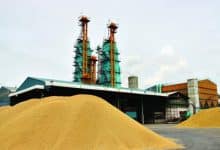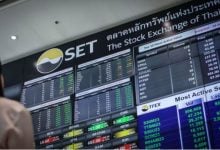Export growth remains uncertain amid high global interest rates in Thailand

In a recent development, the Thai National Shippers’ Council (TNSC) has adjusted its export growth outlook to fall between a negative 0.5% and a positive 1%. This stark revision from the previously projected 0 to 1% growth range primarily attributes to looming global uncertainties, particularly concerning key trading counterparts in the US, the EU, and China. High international interest rates have significantly contributed to this economic unpredictability as well.
Chaichan Chareonsuk, who holds the chairman’s position at TNSC, highlighted the potential challenges exporters are likely to face during the second half, including a sluggish economic revival from essential trade partners such as the US, Europe, and China.
Adding further stress to the state of affairs are the continually soaring international interest rates, resulting in the deceleration of economies worldwide and causing borrowing costs for entrepreneurs to climb, thereby escalating exporters’ production costs and severely impacting export growth. Chairman Chaichan said…
“The upswing in costs such as electricity bills and raw materials is drastically impacting Thailand’s competitive stature in the global market.”
In addition to these economic strains, the effects of climate change are significantly threatening Thailand’s agricultural sector, harming export growth. The El Niño phenomenon, in particular, is anticipated to implicate agricultural exports adversely.
Nevertheless, Chairman Chaichan also maintained a hopeful tone, forecasting the final contraction of Thailand’s exports for 2023 to occur in June, before bouncing back during the rest of the year, allowing the second half’s export performance to return to positive territory.
“Despite China’s economic recovery pacing slower than anticipated, the country’s economy continues to grow.”
Potential opportunities lie in emerging export markets such as India and the Middle East for increased trading of food and agricultural goods, including rice and sugar. In addition, purchase orders from Europe and the US for electrical appliances and automobile products are expected to surge during the festive season.
In their initiative to boost export growth during the second half, the TNSC advised the formation of a new government to be fast-tracked to support continuous export strategies and overall economic progress. The council also recommended the swift execution of free trade agreements (FTAs), such as the Thai-Europe FTA and Thai-UAE FTA.
Pointing to the mounting production costs detrimental to Thailand’s competitiveness against key trading competitors, the TNSC underscored the necessity for addressing elements such as electricity expenses, labour charges, and interest rates. The council said…
“It’s prudent that financial conditions for businesses in the supply chain are fortified, especially for small and medium-sized enterprises, via initiatives like supply chain financing.”
It also stressed the urgent need to amp up the skill and competence level of the workforce to meet the labour market requirements better.
As per the Commerce Ministry’s most recent data, May marked the eighth consecutive month of a decline in Thailand’s customs-cleared export value, plunging by 4.6% to US$24.3 billion. Imports also dipped by 3.4% to US$26.2 billion, bringing about a trade deficit of US$1.84 billion, reported Bangkok Post.
From the beginning of the year until May, exports have seen a year-on-year reduction of 5.1%, amounting to US$116 billion, while imports also fell by 2.5% to US$123 billion, ending up with a trade deficit of US$6.36 billion.
Latest Thailand News
Follow The Thaiger on Google News:


























